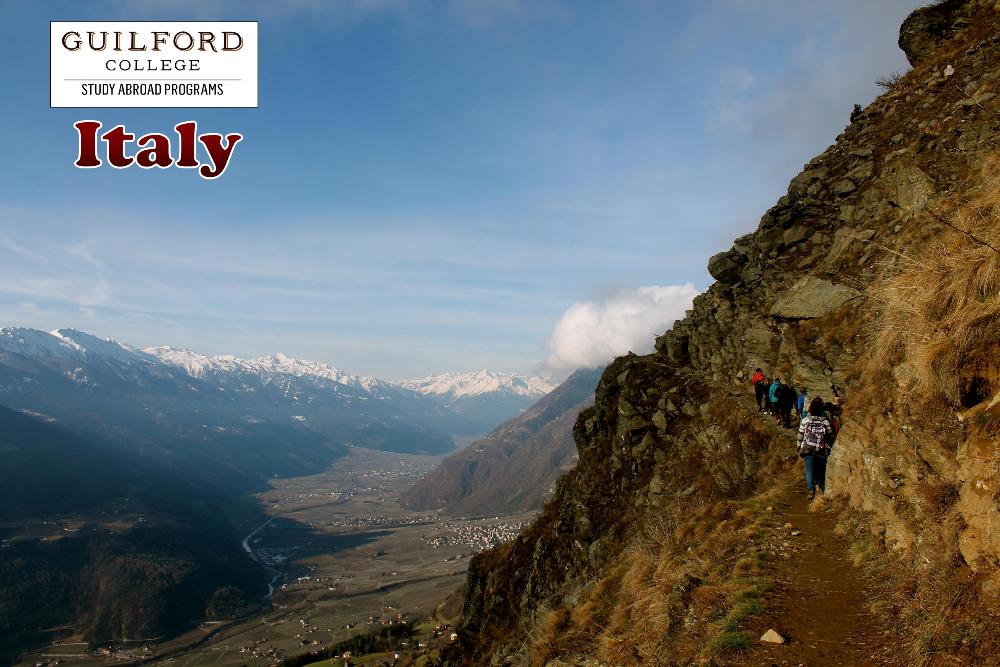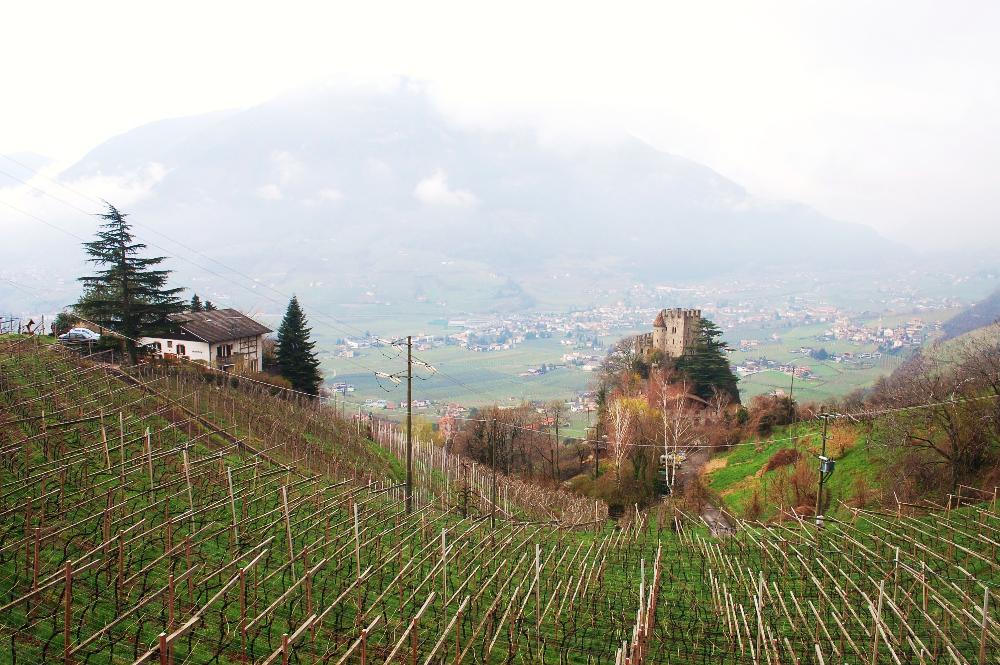 Rated #2 Best Study Abroad Program - Best Colleges Review
Rated #2 Best Study Abroad Program - Best Colleges Review
The Brunnenburg Semester offers students a unique opportunity to experience and study sustainable living with a focus on food systems. Students live in the compound of a 13th century castle in the Italian Alps, called Brunnenburg, which has a working farm and vineyard. The castle is situated on the side of a mountain above the spa town of Merano near the Austrian border in a region known as the South Tyrol. The region is a historical, bi-lingual, and multicultural crossroads. Because the castle belongs to Mary de Rachewiltz, the daughter of American poet, Ezra Pound, one of the added benefits of the program is the opportunity to attend her Sunday teas where students share poetry, music, and other artistic responses to their experience.
All classes involve local excursions. There are also trips to other important cities nearby: Salzburg, Venice, and Cinque Terre. While there is no language requirement, students are encouraged to study German or Italian on their own before going.
Check out this amazing video of Brunnenburg!
Academics (All required):
Food Movements(4 credits)
This course explores the social and environmental dimensions of recent food activism, especially in Europe. After an introduction to social scientific theories of social movements, we will consider several interconnected movements including the Slow Food movement (begun in Italy), anti-GMO activism and policy, the organic farming movement, and the preservation and revitalization of local food systems. Each of these movements has both local and global dimensions, so we will learn about how people are coming together through local, national, and international networks to advance their goals. How are the “local” and the “global” produced in relationship to one another? How do activists see themselves, their communities, and the world? In what way does food activism promote culturally-specific understandings of the world and people’s relationship to the non-human world? How do these movements develop from and reproduce collective identities? We will use Mals—a nearby town that banned pesticides—as a case study. The course will challenge students to move beyond praising and celebrating these food movements to thinking critically about them, their strengths and weaknesses, and the assumptions that underlie them. The course will involve reading, conversations with activists and advocates based in Northern Italy, fieldtrips, and independent research on particular European food movements. Prerequisites: SFS 120 or 220 or instructor permission.
GenEd:
· Intercultural; Social Science; Social justice & environmental responsibility;
· Base B: Evaluating systems/environments; Sociocultural engagement;
· Base C: Social/Behavioral Science
Majors/Minors:
· Political science: major/minor; International Political Economy minor;
· Environmental Studies: major & minor;
· Sustainable food systems: major;
· International Studies: major;
. Sociology / Anthropology: major & minor
IDS courses: Environmental Studies; European studies; International Studies; Sustainable Food systems.
Agro-Archeaology (4 credits)
An introduction to the history and pre-history of agriculture, drawing from the resources of the Tyrolean Alps. An examination of the impact of changes in agriculture on the social and religious realm, as reflected in myths, legends, customs, and beliefs. Each Tuesday students participate in a workday on the farm and surrounding vineyards, which belong to the castle. Instructor: distinguished ethnographer, museum director, and expert in comparative literature, Sizzo de Rachewiltz (SOAN 250)
Environmental Ethics (4 credits)
Exploration of environmental topics from several theoretical, cultural and religious perspectives. Questions include: What are our responsibilities to the environment? To what extent are these responsibilities affected by the interests of other persons or groups? What is the source of these responsibilities and to whom are we obligated? Instructor: Ph.D. candidate, Michi de Rachewiltz
Practicum in Sustainable Agriculture (4 credits)
This course develops skills and knowledge in sustainable agriculture through practical experience in Brunnenburg’s vineyards, orchards, and permaculture garden, and working with their heritage breeds of farm animals. The heart of the course is a work day. Includes readings and reflections in a weekly journal. Under the direct supervision of vintner and farm manager: Nik de Rachewiltz. (ENVS 110)
Brunnenburg Orientation (0 credit)
The first week at Brunnenburg will consist of an orientation to the castle and region. Students will learn about the history of the Tyrol, how to get around, and what to expect for the semester.
Eligible students must be in good academic and judicial standing with a GPA of 2.5 or higher.
Program Details:
For more specific details read through our comprehensive
Brunnenburg Handbook!
Housing:
Students reside in the Brunnenburg Castle's "croft,” which accommodates fourteen. Lunch is provided Monday through Friday. For breakfast and dinner, students shop in the village of Dorf Tirol, using a stipend provided by Guilford College, and do their own cooking.
Costs:
The basic cost of the Semester in Brunnenburg, from early February through early May, is usually the equivalent of a full residential semester at Guilford in Greensboro, plus airfare. (Unfavorable exchange rates may require the addition of a surcharge in order to maintain the quality of the program.) This includes all instruction, fees, housing, program-related travel, and meals. Additional expenses will depend on your own preferences. All federal, state, and college financial assistance, with the exception of work-study funds, is applicable to the Spring Semester in Brunnenburg.
Travel:
All students are required to fly together on a group flight from a common USA departure city, with a common return flight. Exceptions to this policy are rare and must be pre-approved by the Study Abroad office.

.png)